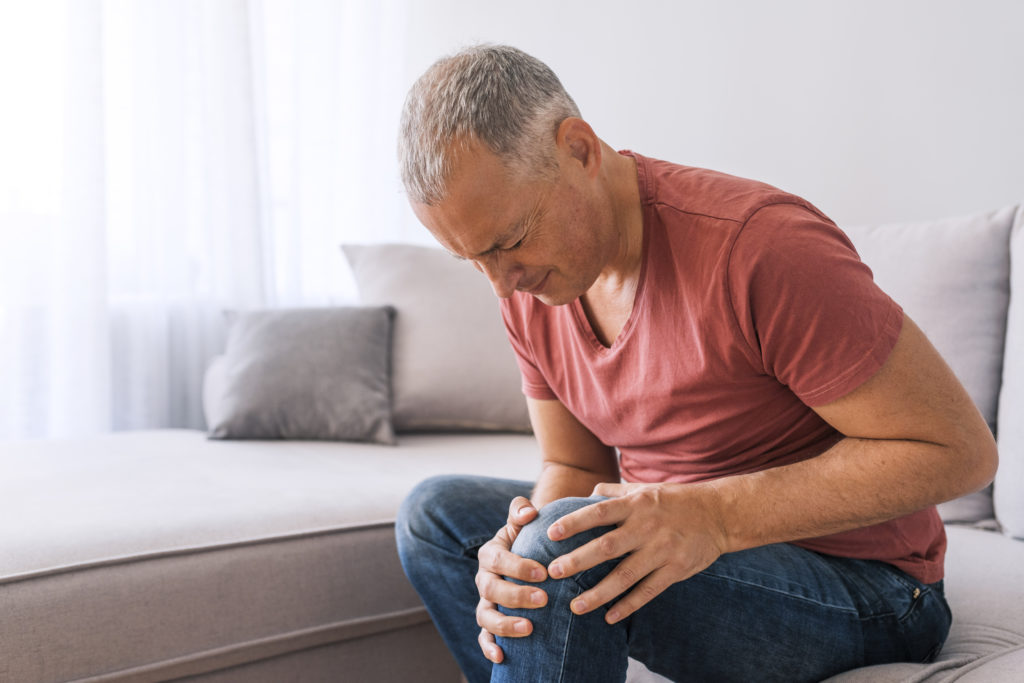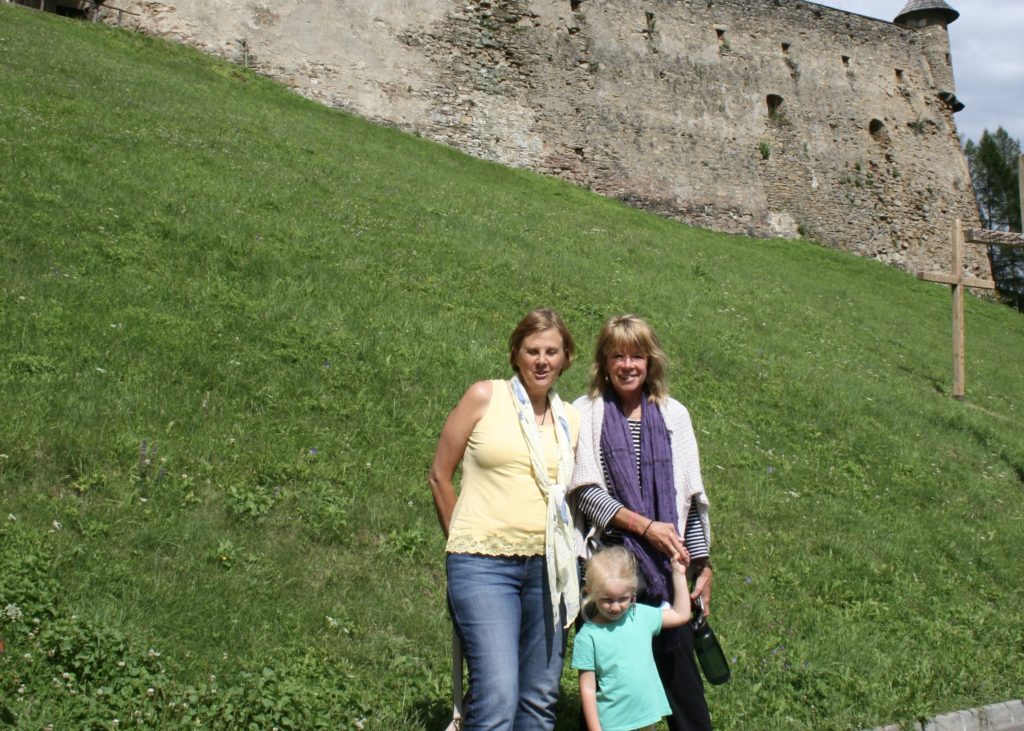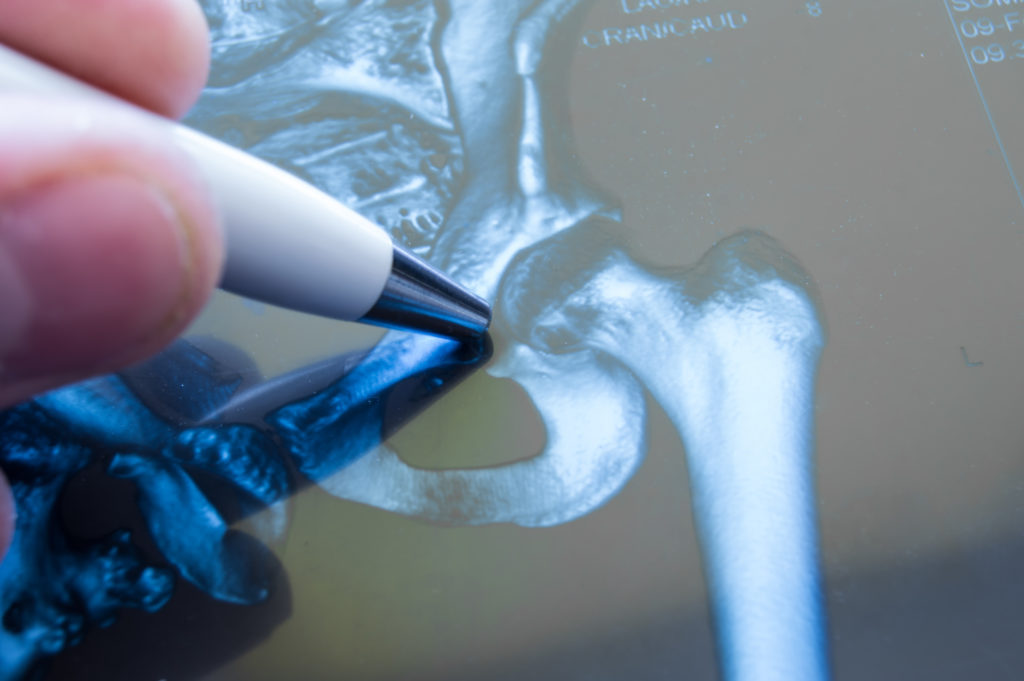Out of every 100,000 people, 41 are diagnosed with rheumatoid arthritis (RA) every year, and women are about two to three times more likely to get RA than men, according to Change to “Healthline.”
It’s important to note that if RA is left untreated, it can also lead to permanent joint damage. There are non-operative measures you can take before total joint replacement surgery.
OrthoIndy total joint surgeon, Dr. Eric Monesmith discusses rheumatoid arthritis symptoms, early morning stiffness in rheumatoid arthritis and stretches and treatment to help alleviate pain.
Find rheumatoid arthritis doctors near me
What is rheumatoid arthritis?
Rheumatoid arthritis is a chronic inflammatory condition affecting your joints and your body’s tissues. It’s an autoimmune disease, which means your immune system mistakenly attacks your own body’s tissues.
This can affect more than just your joints. In some people, it can attack and damage their skin, lungs, heart and eyes as well.
What causes rheumatoid arthritis?
The cause of RA isn’t fully known, but several risk factors could contribute, such as heredity, environment and lifestyle.
Smoking can contribute to or worsen rheumatoid arthritis. Risk increases particularly in people who have smoked for 20 years or longer.
However, if you stop smoking it can not only improve your rheumatoid arthritis, but your overall health will improve, and it may prevent you from getting other life-threatening diseases.
What are the symptoms of rheumatoid arthritis?
The following symptoms can occur when you have rheumatoid arthritis:
- Pain in the joints, back or muscles
- Joint stiffness, notably small joints such as the hands, swelling, tenderness or weakness
- Whole-body fatigue, anemia or malaise
- Skin lumps or redness
- Other common symptoms include flare-ups, dry mouth, physical deformity or sensation of pins and needles
Make an appointment with a total joint physician
Rheumatoid Arthritis and Morning Stiffness
Morning stiffness is quite common in rheumatoid arthritis. Again, smaller joints, such as fingers, wrists and elbows are commonly affected by morning stiffness.
Staying hydrated can help reduce some of the symptoms. Hydration is crucial for flushing toxins out of your body, which can help fight inflammation.
“Most people do not drink enough water to stay properly hydrated, said Dr. Monesmith. “Proper water intake can help keep your joints lubricated and may help prevent flare ups of arthritis. Drinking water before a meal can also help you eat less, promote weight loss and take pressure off your joints. Sticking to an anti-inflammatory diet can reduce inflammation and pain in your joints as well.”
Dr. Monesmith suggests choosing the right food based on your body’s needs. “The foods with a high glycemic index (think sugar) and starchy foods all lead to increased inflammation in the body, making underlying arthritic conditions worse,” he said. “Those ‘comfort foods’ are not really comforting for your joints. Healthy fats, vegetables, nuts, seeds, and some fruit, along with the proper amounts of protein will keep you lean and help you avoid inflammation.”
How long does morning stiffness last in rheumatoid arthritis?
The stiffness can last anywhere from 45 minutes to 90 minutes after you wake up. There are a few things you can do to help get rid of the morning stiffness.
Dr. Monesmith suggests doing stretches in bed, taking NSAIDS before you get out of bed or investing in a heated mattress pad to keep your joints warm and help reduce morning stiffness.
“A warm bath or shower, warm clothing or even warm packs for the hands can help alleviate the symptoms of morning stiffness,” he said.
Stretching Exercises for Rheumatoid Arthritis
Stretching helps reduce rheumatoid arthritis pain. It can help reduce symptoms or decrease stiffness.
There are two types of flexibility exercises you can do.
- Stretches keep your muscles elastic, which helps you move your joints easier.
- Range-of-motion exercises keep your joints moving their full range of motion and reduce stiffness.
Depending on what part of your body hurts, here are some rheumatoid arthritis stretching exercises you can do:
- Hamstring stretches
- Calf stretches
- Shoulder rolls
- Arm rolls
Other activities that may help loosen your joints and are low impact include:
- Yoga
- Tai Chai
- Biking
- Swimming
In addition to stretching, don’t forget about strength training. “Proper strength training will help build muscle, support your joints, improve balance and prevent injury,” said Dr. Monesmith. “Many people overlook this important aspect of fitness and focus too much on cardio. Especially for the hips and knees, strength training can help alleviate arthritis symptoms.”
You can work with a trainer to learn proper strength training techniques. Learning the correct form can help reduce the risk of other injuries.
Find additional stretches from our OrthoIndy Physical Therapy team.
Treatment for Rheumatoid Arthritis Pain
If non-operative treatments are not working, total joint replacement surgery may be the next step in your treatment plan.
A total joint replacement doctor will evaluate you by X-ray or MRI (Magnetic Resonance Imaging). Then, they will determine if you are a total joint replacement candidate and create a treatment plan that is personalized to you.
“The timing of joint replacement surgery depends on many factors, including failure of nonoperative treatment, overall health status and quality of life issues,” said Dr. Monesmith. “When the arthritic joint leads to a significant decrease in quality of life, it is time to consider surgery. With the success of modern joint replacement surgery, one should not suffer needlessly or for too long before choosing surgery.”
Learn more about OrthoIndy Total Joint.
Schedule an appointment
Your well-being is important to us. Click the button below or call us to schedule an appointment with one of our orthopedic specialists. If your injury or condition is recent, you can walk right into one of our OrthoIndy Urgent Care locations for immediate care. For rehabilitation and physical therapy, no referral is needed to see one of our physical therapists.





